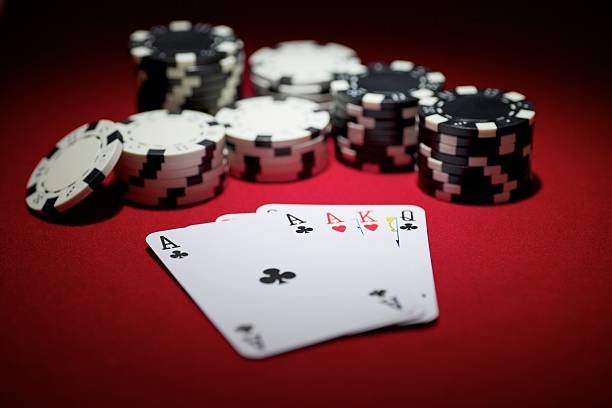
The ability to read your opponents’ hands in poker is an invaluable skill that can give you a major edge over the competition. Of course, this skill requires practice and experience, but with dedication and effort, it’s possible to reach expert-level hand-reading skills.
By understanding how players act when they have different hands and accurately interpreting their betting patterns, you’ll be able to make informed decisions at the table. Additionally, having good hand-reading abilities will help you bluff more effectively because you’ll know which moments are best for making big moves or playing cautiously.
Understanding How Players Act with Different Hands
Hand-reading skills are critical to poker success, allowing players to understand their opponents’ intentions better. Developing these advanced skills, however, requires dedicated practice, analysis, and study. Unfortunately, novice players often need to pay more attention to the importance of hand-reading skills and focus on pre-determined strategies and rules; while necessary, it is insufficient if you wish to reach the expert level.
Proactive participation in games and shows and continual observation of opponents’ hand patterns over time increase accuracy when estimating the strength of your opponent’s hands. Ultimately, having the ability to read what hands other players likely hold accurately gives a tremendous advantage at the table.
with dedication and consistent effort interpreting Betting Patterns Accurately
Developing expert-level hand-reading skills in poker requires extensive practice and an understanding of betting patterns to pay attention to. There are a variety of signs that indicate a player’s intentions, such as an unusually large or small bet for a particular hand strength, an unusually high frequency of raising pre-flop, or a tendency to shy away from all betting action by folding aside from one or two round, etc.
These signs must be interpreted accurately if you want to develop expertise in poker. But having the ability to interpret patterns accurately is only the beginning: you also need the insight and intuition to make the correct move despite your analytical readings. A lot of practice is necessary to nurture these skills, but with enough commitment and effort, there’s no doubt they can become second nature.
Making Informed Decisions at the Table
Becoming a top poker player means learning to make vital decisions at the poker table, and expert-level hand-reading skills are a major factor in making the right choices. To become an expert poker player, developing a poker cheat sheet that can be used when making poker-related decisions involving hand selection and play is important.
This should include acquiring knowledge of poker theory and all types of poker hands, understanding opponents’ betting patterns, and learning how to identify potential tells. In addition, good hand-reading skills will help you consistently play the best hand available or correctly determine when it is necessary to fold.
Bluffing More Effectively
In poker, mastering the art of bluffing is a skill that can set savvy players apart from the competition. To be an effective bluffer, one must develop expert-level hand-reading skills. Accurately “reading” one’s opponents and discerning their tendency to fold or call a bet or raise is crucial for successful bluffing. Knowing when to execute a bluff and when it makes sense not to, with careful consideration of hand strength, stack sizes, opponent profiles, table dynamics, and position, is part of honing these skills.
Furthermore, a keen understanding of pot odds and implied odds can also help optimize a player’s ability to pull off successful bluffs. With focused practice and dedication, they may find themselves on the path to becoming seasoned pros in no time.
Knowing When to Make Big Moves or Play Cautiously
Knowing when to make a big move, whether folding cards or raising the stakes, is essential to maximizing the potential of your hand in poker. Making educated guesses about an opponent’s hole cards can be the difference between winning or losing. Playing cautiously and waiting for high-value hands can reduce risk and keep you from taking advantage of windows that could increase your winnings.
Being an expert-level hand reader takes practice and honing one’s intuition. Observing opponents for mannerisms, betting patterns, and bluffs beforehand will provide valuable insights into their strategy during live rounds. The ready availability of digital resources like online training courses and tapes presents another means to become more familiar with the subtleties of hand reading within poker.
Final Thoughts
Ultimately, hand reading is a skill that must be developed over time and honed in practice. Nevertheless, hand reading is an integral part of any successful poker player’s arsenal, as it can provide invaluable information about opponents’ intentions which often cannot be detected visually.
Expert-level hand-reading skills will allow you to make informed decisions at the table, bluff more effectively, and know when to make big moves or play cautiously. With the resources available today, there’s no excuse to start your journey toward becoming a master hand reader.



